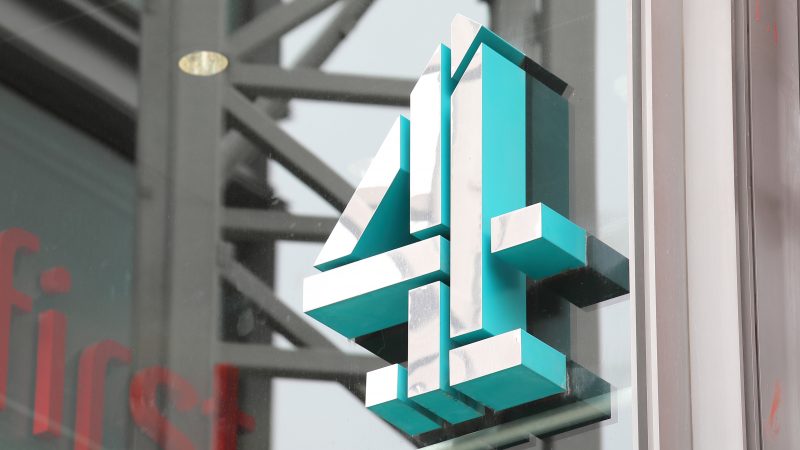
A motion tabled by the Labour Party opposing the government’s plan to sell of Channel 4 has been passed by MPs in the Commons without a vote.
Addressing parliament during the debate, Labour’s Lucy Powell told MPs that the “case for nurturing and retaining all that’s great about this unique British broadcaster are very strong” while the argument to sell is “at best thin”.
“Selling off one of our broadcasting jewels in the crown in a Jubilee year is not just the wrong thing to do as a patriot or for nostalgic reasons, but is also really bad for our world-renowned creative economy,” she said.
“The foundations on which our global success if built come from our unique public private small and large landscape, which puts Britain at the top of the tree when it comes to TV and film.”
The Shadow Digital, Culture, Media and Sport Secretary argued that Channel 4 “unashamedly supports British jobs and the British economy” and described the broadcaster as a “driver of levelling up in the creative industries, which have all too often been focused in London”.
The government confirmed plans to privatise Channel 4 in April. Announcing the decision, Nadine Dorries claimed that public ownership was “holding Channel 4 back from competing against streaming giants like Netflix and Amazon”.
She argued a change of ownership would give the channel “the tools and freedom to flourish and thrive as a public service broadcaster long into the future”.
“The sell-off has no support in the country, no support in the creative industries or amongst other broadcasters, nor with advertisers. And it’s got very little support in here,” Powell told parliament this afternoon.
“It’s cultural vandalism which doesn’t get modern Britain nor understand how to best grow the British economy.”
The plans also faced Tory opposition. Peter Bottomley branded the move “destructive” while former Treasury minister Jesse Norman insisted it is “bad economics”. Chair of the digital, culture, media and sport committee and Conservative MP Julian Knight said the benefit to the Treasury would be “marginal”.
Knight added: “We have more than three different types of public service broadcasters, Government is proposing to abolish one of them. That is not conservative, that is destructive.”
Channel 4 itself has criticised the decision to sell, saying earlier this year that it was “disappointing” the announcement had been made “without formally recognising the significant public interest concerns which have been raised”.
Former Culture Secretary Jeremy Hunt said he was not in favour of the sale and never considered privatisation while in post. Fellow Tory MP Damian Green argued that the decision suggested politicians and civil servants think they know “more about how to run a business than the people who run it”.
Tory culture select committee chair Julian Knight asked whether the sale was “being done for revenge” for “biased coverage” and “personal attacks” on Boris Johnson.
Tory MPs have accused Channel 4 of a lack of impartiality. The decision by Channel 4 News in 2019 to replace the Prime Minister with a block of melting ice when he refused to appear in a climate change debate resulted in threats to review the channel’s broadcasting remit.
Responding to the government announcement, former Channel 4 editor-at-large Dorothy Byrne said the government’s argument on competition did not “stack up” because Channel 4 exists to provide a “public service to the people of Britain” not compete with streaming services.
Byrne strongly criticised Dorries, saying the Secretary of State “doesn’t know very much about the broadcasting sector”. Dorries was publicly corrected last year when she falsely claimed that Channel 4 receives licence fee money.
Below is the text of Labour’s motion on Channel 4 privatisation.
Keir Starmer
Lucy Powell
Ian Murray
Chris Elmore
Thangam Debbonaire
Sir Alan Campbell
That this House supports the UK’s much loved cultural institutions, which are celebrated around the world while creating jobs and growth across the country; in the Jubilee year supports world-renowned British broadcasting which brings the country together in celebration; believes that the government should reverse its decision to sell Channel 4 as it will undermine the UK’s world-leading creative industries and the delicate ecosystem of companies that support them; and calls on the government to ensure that, if the sale does go ahead, Channel 4’s headquarters continue to be based in Leeds and its remit ensures that it continues as a public service publisher-broadcaster, commissions over 50% of its content outside London, continues its significant investment in new independent British films and funds quality news content which is aired at prime time.




More from LabourList
Turning the page? Labour’s recovery in the polls show a path to 2029 victory
Restoration announce recommendations for NEC candidates
‘Factionalism at the top is weakening Labour – and handing a gift to Reform’